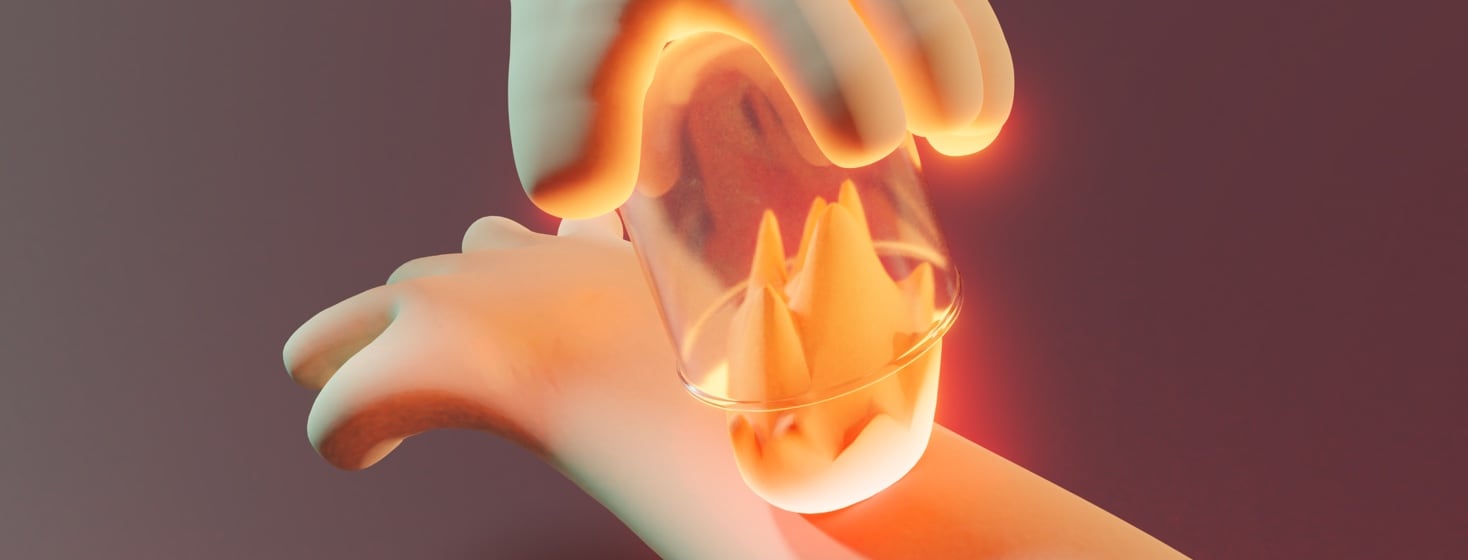Community Views: Flare Management
Maybe your psoriasis decided to flare after a period of stress or illness. But sometimes a flare arrives for no discernible reason at all. No matter what brought it on, a flare-up doesn’t have to be a catastrophe. With a little preparation, you can manage it (and mitigate the discomfort that comes with it) relatively easily.
When a psoriasis flare strikes...
Everyone living with psoriasis fights flares differently. Over time and through trial and error, members of this community have found what works best for finding relief during a flare. To find out more about which strategies are actually working, we reached out on the PlaquePsoriasis.com Facebook page with this: “You feel a psoriasis flare coming on. What is the first thing you do?”
The prompt saw answers from 25 people with plaque psoriasis. Here is what they said:
Take medicine
One of the most common answers was to take medicine. For many with plaque psoriasis, it takes time, and often several different prescriptions, until they find the right drug that will be effective in fighting flares. Those who are happy with their prescriptions find that medicine brings more relief than anything else.
“My psoriatic meds.”
Applying lotion
Lotions, creams, balms, and ointments can bring relief. Different members of the community swear by different lotions. For some, over-the-counter creams designed specifically for psoriatic arthritis do the trick. You can find them at drugstores or online retailers. However, if those do not work, prescription creams can be more effective in treating this condition.
“Get out my trusty med bag with lotions.”
“I try not to wait too long before applying ointments.”
Get comfortable
Some in the community said that their best offense is a good defense. They get comfortable on the sofa, in a hammock, or in bed. They put on loose clothes and prepare to just ride it out. Resting can be a great strategy, given that flares are often caused by stress.
Resting can mean a lot of things, including taking a day off work or asking for an extension on a project. Many with psoriatic arthritis find that sunshine can help their skin. Sunshine is also good for fighting stress, so do not shy away from relaxing outdoors.
“Get comfy.”
“Slow down and rest.”
Cry
For some, the tears start flowing as soon as they realize a flare is coming on, and that is not necessarily a bad thing. As mentioned earlier, stress is one of the biggest triggers for psoriatic arthritis flares. Anything you can do to reduce stress helps, and crying can actually lower stress. Crying also activates the parasympathetic nervous system, which can help the body get back into balance.
“Cry.”
Nothing
For some, the answer is simply time. They have learned to accept the flares and just do their best to not let psoriasis interfere with their lives. The good part of this strategy is that acceptance can help you not to get upset over flares. Instead, just allowing whatever is going to happen can be calming.
“Nothing anymore. I am so used to it.”
Thank you!
When you have psoriasis, it's important to follow the advice of your doctor. Still, you can do a lot on your own to help control and prevent flare-ups.
We want to say thank you to everyone who shared on this topic. We appreciate hearing input from so many in the psoriasis community.

Join the conversation